The cost of VP Shunt includes:
Preoperative diagnostic tests cost (MRI, CT scan, etc.)
Surgery cost
Post-Operative cost (depends on the number of follow-up sessions)
Medicine cost
Patient's hospital stay (may need to stay for 4-5 days)
The overall cost of the procedure also varies based on the patient's condition and preferences. Some of these factors are:
Type of hospital and room opted (General, Twin sharing, or Single room)
The severity of the disease
Post-surgical complication, if it happens (such as mechanical malfunction, placement failure, infection, CSF leak)
Cost of Blood products (if required)
An extended stay at the Hospital
Cost of Accommodation during follow-ups, in case the patient is not a local resident
Listing approximate price of Vp Shunt and some related procedures. The prices may change depending upon the centers and condition of the patient.
| Treatment name | Cost range |
|---|---|
| VP Shunting - Programmable Device | USD 9450 to USD 11550 |
For patients planning to travel abroad it is useful to know the price in destinations popular with medical travellers. The price for Vp Shunt in different countries is approximately:
Listing popular specialists:

Consultant, 29 years of experience

Radiosurgery in Neurosurgery Full-endoscopic Operations of the Lumbar, Thoracic and Cervical Spine

Consultant, 25 years of experience

Epilepsy Surgery Functional Neurosurgery

Consultant, 19 years of experience

Endoscopic skull base surgery for tumor resection
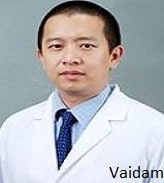
Consultant, 28 years of experience

Neurovascular surgery

Assoc. Prof. Dr. Krishnapundha Bunyaratavej
Associate Professor, 28 years of experience

Epilepsy and pain Spine Surgery

Consultant, 30 years of experience

Neuroendoscopy

Consultant, 15 years of experience

Pediatric Neurological Surgery

Assoc. Prof. Dr. Pataravit Rukskul
Associate Professor, 26 years of experience

Minimal Invasive Neurosurgery Base Skull Surgery Spinal Surgery
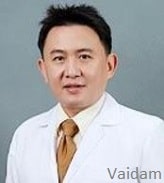
Assist. Prof. Dr. Peerapong Montriwiwatchai
Professor, 27 years of experience

Spine Surgery
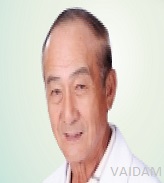
Consultant, 58 years of experience

Ventriculostomy, Microdiscectomy, Spinal Fusion, Epilepsy Surgery, Lumbar Puncture, Laminectomy, Craniotomy, Aneurysm clipping, Brain tumor surgery, Cerebrovascular neurosurgery
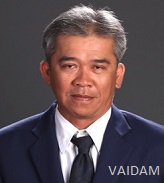
Consultant, 38 years of experience

Skull Base Surgery Ventriculostomy Microdiscectomy Spinal Fusion Epilepsy Surgery Lumbar Puncture Laminectomy Craniotomy Aneurysm clipping Brain tumor surgery Cerebrovascular neurosurgery Craniotomy Deep brain stimulation Endoscopic surgery Endovascular neurosurgery Epilepsy surgery Minimally invasive surgery Peripheral nerve surgery Psychiatric neurosurgery Skull base surgery Trauma surgery
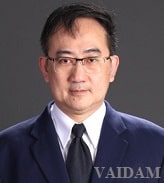
Director, 26 years of experience

Spine Surgery, Brain Surgery

Consultant, 21 years of experience

Neurosurgery Endovascular treatment

Senior Consultant, 25 years of experience

Neurological Surgery and Sports Medicine.
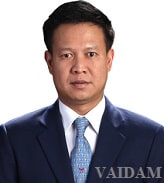
Senior Consultant, 33 years of experience

Brain Surgery, Skull-Base Surgery, Spine Surgery
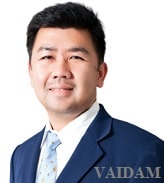
Senior Consultant, 26 years of experience

Neurological Surgery
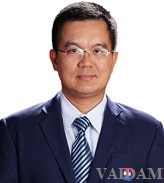
Senior Consultant, 28 years of experience

Brain Surgery, Spine Surgery
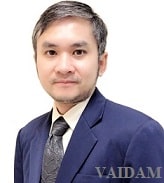
Senior Consultant, 18 years of experience

Neurological Surgery.
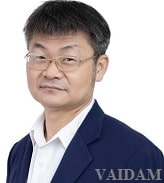
Senior Consultant, 26 years of experience

Neurological Surgery.
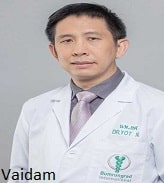
Consultant, 29 years of experience

Spine Surgery, Shaped Beam Radiosurgery
Our Services for Vp Shunt in Thailand
Transparent - Professional - Without Hassles
You won't be able to see the catheter because it will be under your skin. However, you may be able to feel the shunt catheter along your neck. Once all the parts of the shunt are connected, it will start draining the excess CSF as needed to reduce the pressure in your brain.
It can last from a few days or weeks to many years. In adults we have seen them last for as long as 35 years. Over time the plastic tube can corrode and disintegrate, requiring a new shunt to be inserted.
There are different indications for programmed vs unprogrammed shunt, Programmed is usually done in elderly individuals and congenital hydrocephalus while unprogrammed is chosen for tumors, hydrocephalus and meningitis.
WHO regulation says it may require a change every 5 years so there are less chances of blockage.
Usually for 5 days.
The entire procedure takes about 90 minutes.
Usually for 5 days.
There are different indications for programmed vs unprogrammed shunt, Programmed is usually done in elderly individuals and congenital hydrocephalus while unprogrammed is chosen for tumors, hydrocephalus and meningitis.
It can last from a few days or weeks to many years. In adults we have seen them last for as long as 35 years. Over time the plastic tube can corrode and disintegrate, requiring a new shunt to be inserted.
You won't be able to see the catheter because it will be under your skin. However, you may be able to feel the shunt catheter along your neck.
Once all the parts of the shunt are connected, it will start draining the excess CSF as needed to reduce the pressure in your brain.
Depending on the circumstances, a VP shunt can be temporary or permanent. If the cause of your hydrocephalus is idiopathic (unexplained), congenital (present from birth), or the result of a defect in the anatomy of the brain or spine, there is a strong chance that you will need to have your VP shunt for the long term.
No followup visit is required once patient has been reviewed for about 3 weeks
Most of the hydrocephalic patients will be required to keep their CSF shunt all life long. One of the advantages of this therapy is that it allows you to have a normal daily life. The shunt will restore the CSF circulation to regulate its flow.
WHO regulation says it may require a change every 5 years so there are fewer chances of blockage.
Most of hydrocephalic patients will be required to keep their CSF shunt all life long. One of the advantages of this therapy is that it allows you to have a normal daily life. The shunt will restore the CSF circulation to regulate its flow.






NABH Certified Healthcare Discovery Platform
Vaidam is NABH certified healthcare discovery platform that will connect you to top-notch medical experts, hospitals, wellness options, and trusted travel partners to help identify and make the right healthcare choices.

Researched & Personalized Treatment Plan - Under One Roof
You can search for the best hospitals, read about them, view photographs of the facilities at the hospitals and the places at which the hospitals are located, and check the cost of treatment.

Quality Treatment Within Your Budget
As soon as you post an enquiry, the patient relation team will collect details from you, share them with the doctors and hospitals on Vaidam's panel, and get a personalized treatment plan. We research to get quality treatment within your budget.

Treatment to Travel
Vaidam concierge assists patients, to get medical Visa, the best airline fares and arrangements for your stay. Our concierge also helps you with daily travel, language, and food concerns. Vaidam does everything to be your perfect host. All of Vaidam’s services are free of cost to patients.

International Reach
Vaidam Health has network in 15+ countries, which includes India, Turkey, UAE, Germany, South Korea, Thailand, Malaysia, Spain.
Note: Vaidam Health does not provide medical advice, diagnosis or treatment. The services and information offered on www.vaidam.com are intended solely for informational purposes and cannot replace the professional consultation or treatment by a physician. Vaidam Health discourages copying, cloning of its webpages and its content and it will follow the legal procedures to protect its intellectual property